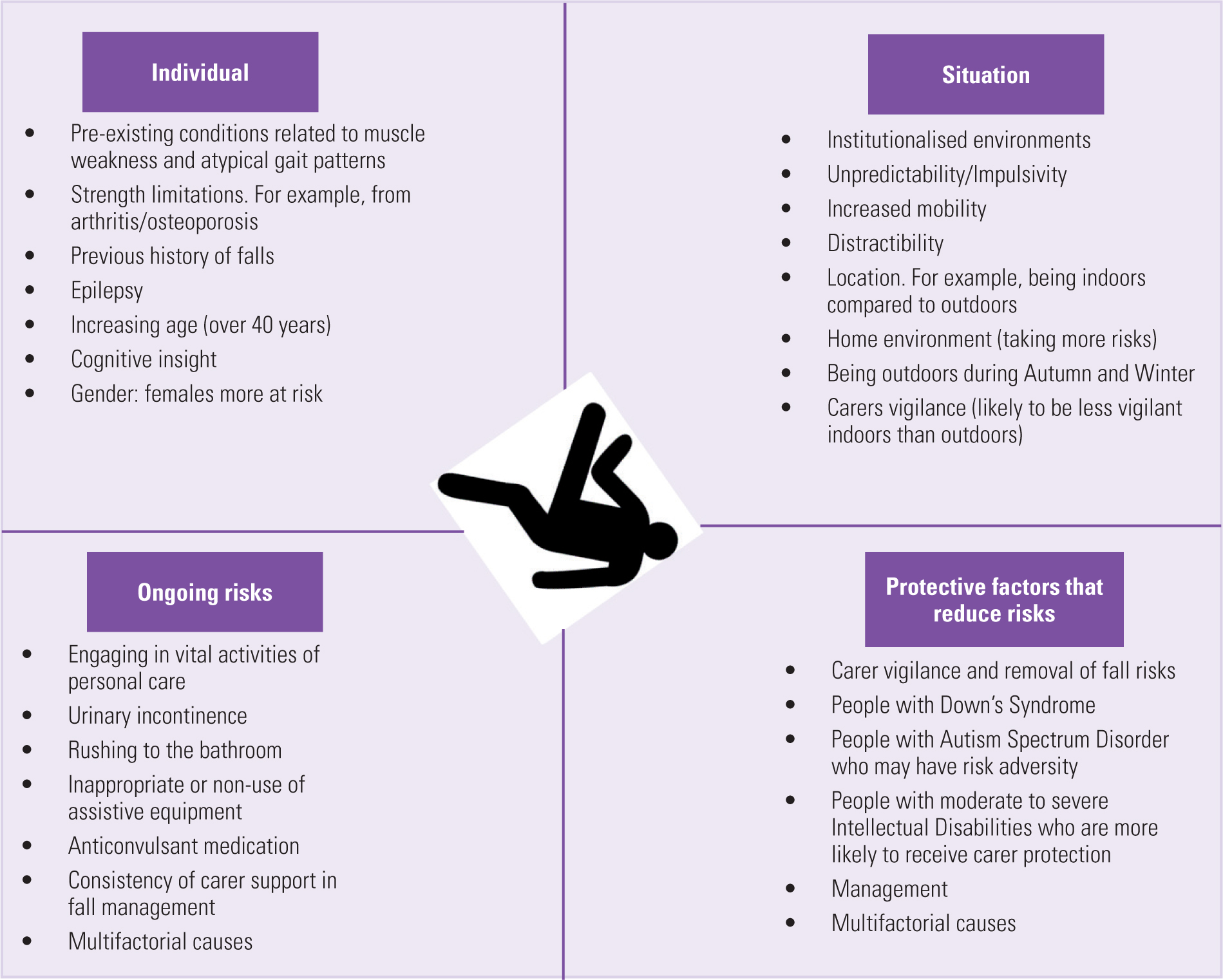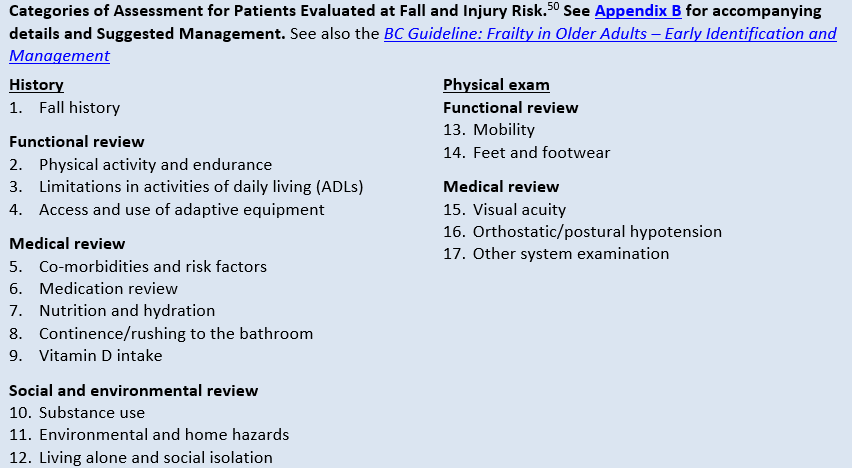Top Guidelines Of Dementia Fall Risk
Wiki Article
The Best Strategy To Use For Dementia Fall Risk
Table of ContentsThe smart Trick of Dementia Fall Risk That Nobody is Talking AboutSome Ideas on Dementia Fall Risk You Should KnowDementia Fall Risk Fundamentals ExplainedDementia Fall Risk - An Overview
An autumn threat analysis checks to see how likely it is that you will certainly fall. The assessment usually includes: This consists of a series of concerns regarding your overall wellness and if you have actually had previous drops or troubles with balance, standing, and/or walking.STEADI consists of screening, analyzing, and intervention. Treatments are recommendations that might minimize your threat of falling. STEADI consists of 3 actions: you for your risk of succumbing to your risk variables that can be enhanced to attempt to stop falls (for instance, balance issues, damaged vision) to reduce your danger of dropping by using efficient strategies (for instance, giving education and learning and sources), you may be asked a number of questions consisting of: Have you dropped in the past year? Do you feel unstable when standing or strolling? Are you stressed concerning falling?, your service provider will certainly check your toughness, equilibrium, and gait, utilizing the adhering to loss evaluation devices: This test checks your gait.
If it takes you 12 seconds or even more, it might imply you are at higher risk for a fall. This examination checks toughness and balance.
Move one foot halfway forward, so the instep is touching the large toe of your various other foot. Move one foot fully in front of the various other, so the toes are touching the heel of your other foot.
How Dementia Fall Risk can Save You Time, Stress, and Money.
Many drops occur as an outcome of multiple adding factors; therefore, taking care of the risk of dropping begins with recognizing the aspects that add to drop threat - Dementia Fall Risk. Several of one of the most pertinent danger factors consist of: History of prior fallsChronic clinical conditionsAcute illnessImpaired stride and balance, reduced extremity weaknessCognitive impairmentChanges in visionCertain high-risk drugs and polypharmacyEnvironmental elements can also enhance the threat for drops, consisting of: Insufficient lightingUneven or damaged flooringWet or slippery floorsMissing or harmed hand rails and get hold of barsDamaged or poorly fitted devices, such as beds, mobility devices, or walkersImproper use assistive devicesInadequate guidance of individuals residing in the NF, consisting of those who show hostile behaviorsA effective fall threat monitoring program needs a complete clinical analysis, with input from all participants of the interdisciplinary team

The care strategy ought to additionally include interventions that are system-based, such as those that promote a risk-free atmosphere (proper lights, handrails, order bars, etc). The wikipedia reference effectiveness of the treatments must be assessed occasionally, and the treatment plan revised as essential my sources to reflect changes in the autumn risk evaluation. Executing an autumn threat monitoring system making use of evidence-based finest method can reduce the occurrence of drops in the NF, while limiting the capacity for fall-related injuries.
Some Known Questions About Dementia Fall Risk.
The AGS/BGS guideline recommends screening all adults matured 65 years and older for autumn threat each year. This screening contains asking patients whether they have actually dropped 2 or more times in the past year or looked for clinical attention for an autumn, or, if they have actually not dropped, whether they feel unsteady when walking.Individuals who have dropped when without injury ought to have their balance and stride assessed; those with stride or equilibrium irregularities should receive additional analysis. A history of 1 autumn without injury and without stride or equilibrium issues does not warrant further evaluation past continued annual fall risk testing. Dementia Fall Risk. An autumn threat evaluation is required as part of the Welcome to Medicare exam

See This Report about Dementia Fall Risk
Recording a falls history is one of the top quality indications for autumn prevention and management. copyright medicines in specific are independent predictors of drops.Postural hypotension can typically be relieved by decreasing the dosage of blood pressurelowering medicines and/or quiting drugs that have orthostatic hypotension as a side impact. Usage of above-the-knee support hose and sleeping with the head of the bed raised might additionally reduce postural reductions in blood pressure. The recommended components of a fall-focused health examination are received Box 1.

A yank time higher than or equivalent to 12 seconds suggests high loss risk. The 30-Second Chair Stand examination assesses reduced extremity toughness and equilibrium. Being incapable to stand up from a chair of knee height without making use of one's arms indicates raised fall threat. The 4-Stage Balance test analyzes static equilibrium by having the patient stand in 4 settings, each considerably much more tough.
Report this wiki page